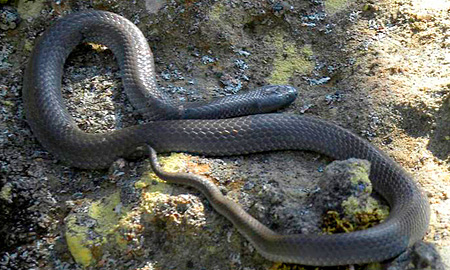Introduction
When it pertains to poisonous snakes, Australia is home to several of one of the most fascinating and harmful varieties in the world. Among these, the Tiger Snake sticks out not just for its potent venom yet likewise for its intriguing behavior. Understanding the habits of venomous snakes like the Tiger Serpent is crucial for both wild animals fanatics and those residing in locations where these snakes exist. This write-up looks into different aspects of Tiger Snake habits, habitat, identification, safety measures, and first aid techniques in case of a serpent bite.
Understanding the Behavior of Venomous Snakes Like the Tiger Snake
The Tiger Snake, medically known as Notechis scutatus, is notorious for its aggressive nature when intimidated. These serpents show a range of actions that can be quite different from their non-venomous equivalents.
Characteristics of Tiger Snakes
The Tiger Snake is conveniently identifiable due to its unique bands or stripes that resemble a tiger's markings. They can vary in color from yellowish-brown to dark olive or black. This coloration serves not only as camouflage but additionally as a warning signal to prospective predators.
Adaptability to Environment
One impressive facet of their behavior is their flexibility to numerous settings. Discovered largely in seaside regions, marshes, and wetlands throughout Australia and Tasmania, they can grow in diverse environments including metropolitan locations.
Hunting Techniques
Tiger Snakes are ambush predators mostly feeding upon fish, frogs, and little creatures. They have keen eyesight and an intense feeling of scent which helps them in situating target effectively.
Venom Composition
Their poison contains neurotoxins that affect the nervous system, causing paralysis or death in smaller pets. For humans, immediate medical attention is vital after a tiger snake bite due to its possibly deadly effects.
Natural Environment of Tiger Snakes
Preferred Locations
Understanding where these serpents live clarify their behavior patterns. The tiger serpent habitat consists of:
- Coastal regions Swamps Grasslands Urban locations with bountiful water sources
Seasonal Movements
During warmer months, Tiger Snakes are extra energetic as they bask in sunlight or search for food. On the other hand, colder months see them retreating right into hibernation sites.
Are Tiger Snakes Venomous?
Yes! The concern "are tiger snakes venomous?" commonly occurs among those not familiar with this types. Their venom is taken into consideration among the most dangerous amongst all snake types worldwide.
Symptoms of a Tiger Serpent Bite
If bitten by a tiger serpent, signs and symptoms may consist of:
- Localized pain Swelling at the bite site Nausea and vomiting Sweating and confusion
Immediate medical assistance is important as untreated bites can cause severe health and wellness complications or even death.
First Aid for Snake Bites: Quick Action Guide
Knowing just how to carry out first aid for a snake bite could conserve somebody's life. Here's what you should do:
Step 1: Stay Calm
Keeping calmness helps decrease heart price which reduces venom spread.

Step 2: Debilitate the Affected Area
Keep the impacted limb still and below heart level if possible.
Step 3: Call Emergency Situation Services
Always seek specialist clinical assistance right away after a snake bite.

First Help for Snake Bite Kit Essentials
A fully equipped snake bite emergency treatment kit must consist of:
- A compression bandage Antiseptic wipes A set of scissors A cold pack
Safety Safety measures: Stopping Serpent Bites in Australia
Awareness Programs
Educating areas about local serpent varieties and their behaviors can substantially minimize encounters leading to bites.
Avoiding Hazardous Areas
Staying away from lengthy yard throughout warmer months reduces call with snakes that may be relaxing or hunting.

Common Misunderstandings Regarding Tiger Snakes
Many people believe misunderstandings about the habits of tiger snakes result in unneeded worry. Here are some clarifications:
Myth 1: All Tigers Are Aggressive
Not all tiger serpents will certainly display aggression if left uninterrupted; lots of favor fleeing as opposed to confrontation.
Myth 2: They Chase Humans
Tiger serpents do not proactively chase after humans; they may strike when they feel threatened however will generally pull away if Yellow belly Tree Snake offered space.
Conservation Initiatives Related to Venomous Snakes
Conservation efforts focus on enlightening communities concerning safeguarding local wildlife while minimizing human-snake interactions.
Importance of Ecosystems
Understanding Mulga Snake (King Brown) that venomous snakes play an important role in preserving ecological equilibrium helps foster gratitude instead of concern in the direction of them.
FAQs About Tiger Snakes
What must I do if I encounter a tiger snake?- Maintain range and slowly back away without sudden movements.
- While attacks aren't extremely usual as a result of awareness efforts, they still take place every year within Australia.
- Baby tiger snakes can deliver full doses of poison regardless of being smaller sized; hence caution is recommended around them.
- They largely consume frogs, fish, small mammals like rats, and other reptiles.
- It's illegal in the majority of jurisdictions without proper licensing as a result of security problems concerning their venom.
- Wear strong boots and remain on marked routes; look prior to putting hands or feet into hidden spaces like rocks or logs.
Conclusion
Understanding the actions of venomous serpents like the Tiger Serpent not only boosts our expertise but also advertises safety understanding among those living near their environments. From recognizing their attributes, recognizing emergency treatment protocols complying with a bite, via involving conservation initiatives-- every facet plays a crucial function in fostering coexistence with these fascinating reptiles while valuing their location within our ecosystem.
Differences between Australian taipans and brown snakesAs we grow our understanding via education and experience, we contribute favorably toward guaranteeing both human security and wildlife conservation-- profiting all parties involved!